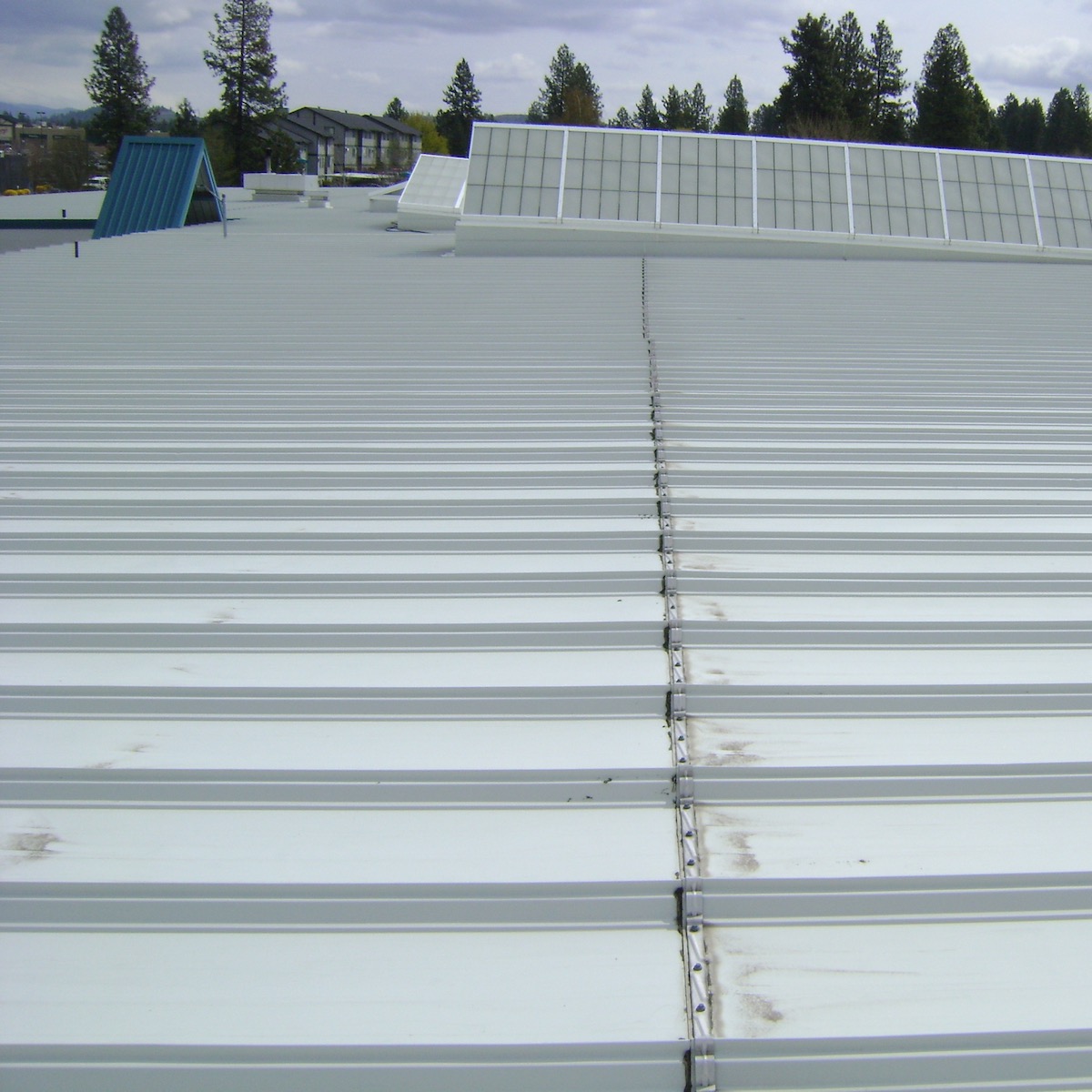Cedar Park Roofing is a professional who builds, inspects, repairs and replaces the roofs of residential or commercial buildings. This person may also install skylight windows and replace lead sheeting and cladding.
A roofer must be able to work under different weather conditions and ensure that all building regulations and safety requirements are met. They must also interact with customers and provide information about roofing materials and techniques.

Roofers work with a wide variety of materials and tools. They must also be able to read blueprints and understand building codes. They also use their skills to estimate the cost of labor and materials for each project. In addition, they must be able to work at heights on ladders and scaffolding safely. Roofers often work with a team of other construction professionals, such as carpenters and electricians. This requires excellent communication and customer service skills.
Many roofing professionals have developed their skills through on-the-job experience as an apprentice or in another related trade job. They also often have a college degree or industry certification in roofing or shingling. These educational qualifications help them build the necessary technical knowledge to perform the job duties and meet employer expectations.
During the interview process, prospective rooers can highlight their skills by discussing their experience with roofing materials and construction methods. They can also discuss any safety training or certification they have received. In addition, it is helpful to include any roofing-related coursework they have completed during their academic career.
A successful roofer has a strong grasp of the available roofing systems, including flat roofs, pitched roofs, and shingle roofs. They can recognize the benefits and drawbacks of each type of roof, as well as the proper materials and installation techniques for each. This can help them provide their clients with the best roofing solutions for their home or business.
In addition to their technical knowledge, a roofer must be able to solve problems that may arise during a project. This includes troubleshooting issues, identifying potential solutions, and ensuring that all aspects of the roofing project are completed on time and within budget.
To succeed in this role, a roofer must be detail-oriented and have excellent customer service skills. They must be able to answer any questions homeowners might have about their roofing system and explain the pros and cons of each option. They must also be able to work efficiently and quickly to ensure that the job is completed on time.
There are several different licenses and permits that a roofer may need. These are typically determined by the state where they work and can vary from a state-wide licensing requirement to requirements at the local level. In addition, other certifications may be available, such as the ability to handle asbestos, that are not necessarily required but may benefit a roofing contractor.
The construction industry has become one of the most heavily regulated industries in the United States, especially for contractors working in specialized fields. As a result, any potential roofing contractor needs to understand the licensing requirements in their state before taking on any work. Currently, 32 states require that residential and commercial roofing contractors be licensed at the state level. The specific requirements in these states can vary, but most require that the roofing contractor pass an exam, provide proof of insurance, and sometimes offer a bond before being granted a license.
Regardless of the requirements in a particular state, a reputable roofing contractor will be licensed, insured, and bonded. These documents should indicate to any potential client that the roofing contractor is professional, respected, and qualified to work on their roof.
In Connecticut, for example, a roofing contractor must be registered with the Department of Consumer Protection to perform any work on a residential property. The registration process requires that the contractor pass an examination, provide proof of liability and workers’ compensation insurance, and post a surety bond.
A residential roofing contractor must obtain a Construction Contractor or Residential Specialty Contractor license in Oregon. This process begins with completing pre-licensing training for the desired license type. Once completed, an application must be filed with the Construction Contractors Board. In addition, the roofer must also register with the local government where he will be performing work. In the case of the city of Portland, this means obtaining a building permit before beginning work. In the case of other cities and towns, this may not be necessary, but it is important to check with the local city hall before starting any work.
Roofers help keep people and things indoors, protecting them from the elements. They install and repair roofs made of various materials, including metal, shingles, and asphalt. They also train apprentices and provide customer support. Most roofers receive on-the-job training to learn the skills of the trade.
Some trade schools offer pre-apprenticeship programs that lead to paid apprenticeships and industry certifications for new roofers. These programs are a great way for high school graduates or those without college degrees to earn money while they learn the trade. These programs can be more competitive than traditional jobs and often have better benefits.
On-the-job training for a roofer typically includes learning how to use the tools of the trade and completing basic roofing tasks. Depending on the type of roof, training may consist of working under different weather conditions and learning to lay specific types of roofing material. A roofer is also trained to identify and fix leaks and other problems with existing roofing.
For some new roofers, professional certification offers the opportunity to take pride in their work and show employers they have the knowledge and expertise to do the job correctly. These certifications can be obtained in various ways, including taking classes or passing tests. In some cases, the certification must be renewed regularly.
Continuing education is also important for rooers to maintain their skills and stay current on new technologies or best practices in the field. Some organizations, like the National Roofing Contractors Association (NRCA), offer training that can be taken online or in person, and membership is often required. Other training is available through independent vendors, such as the Contractor Training Center, which provides courses and workshops for all phases of the roofing process.
After a storm, you must look for any damage you can fix and ensure your insurance company knows the situation. This will help ensure a smooth, hassle-free claims process. Start with a thorough inspection of your property and take pictures of any damage that can be seen. Then, look at your homeowner’s policy to understand what you need to do to file a claim.
If you have pictures of your home before the storm, your insurance company can quickly and easily compare them to see what has changed in your house. This will prevent them from accusing you of making false or fraudulent claims and speed up the process of getting compensation for your damaged items.
During the storm, your roof could sustain wind damage through ripped or missing shingles. This is a common storm damage that can occur during any weather event. However, there are some steps you can take to protect your roof from further damage.
In addition to inspecting your roof, you should look at your windows and doors for cracks, holes, broken panes, and damaged frames. You should also check the sidings, paint, bricks, and outdoor appliances like air conditioning units for dents, cracks, splitting, holes, chipping, and discoloration. Ensure that you do this as safely as possible.
Once you have taken photos of the storm damage, call your insurance agent and ask to schedule an inspection. Ensure you are present for the check and show your insurance agent the pictures of the storm damage. This will ensure that your insurance company will reimburse you fairly for the repairs. Also, keep all receipts for materials used in the repairs so that your insurance company knows the repairs are fair and reasonable.

